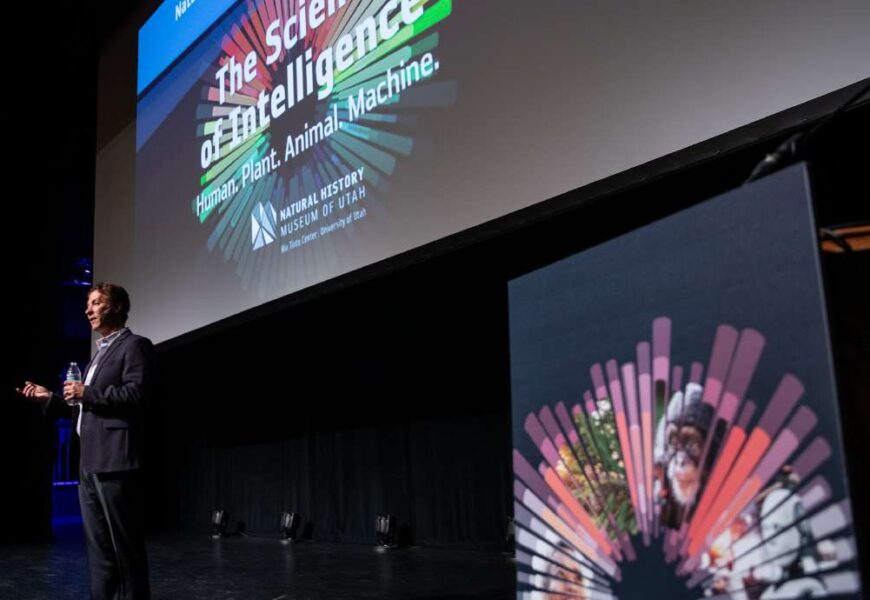SALT LAKE CITY — The concept of intelligence is under scrutiny in light of the advancements in artificial intelligence and big language models. David Eagleman, a researcher at Stanford University and the renowned author of “The Brain with David Eagleman,” shared insights on this topic during a presentation at the University of Utah’s Kingsbury Hall. He emphasized that AI’s capacity to swiftly process vast amounts of data from diverse sources and generate coherent responses using advanced large language models showcases a unique form of intelligence.
Eagleman raised thought-provoking questions about the nature of intelligence in the era of AI, highlighting the ability of these systems to access extensive information repositories and perform complex linguistic tasks. He referenced the Chinese room thought experiment to illustrate that mimicking human behavior does not necessarily equate to true intelligence. Despite the remarkable capabilities of AI models like ChatGPT in processing and analyzing text data, Eagleman stressed the distinction between statistical manipulation and genuine cognitive understanding.
In his discourse, Eagleman proposed a new benchmark for evaluating AI intelligence based on its capacity to make authentic scientific breakthroughs. He underscored the significance of scientific discovery as a hallmark of human intelligence and suggested that AI’s ability to contribute meaningfully to scientific endeavors would signify a significant leap in its cognitive prowess. By categorizing scientific discovery into two levels—synthesizing existing knowledge and generating novel insights—Eagleman elucidated the transformative potential of AI in advancing research and innovation.
Furthermore, Eagleman contended that AI exhibits creativity akin to human cognitive processes, particularly in synthesizing and reinterpreting information. While acknowledging AI’s proficiency in information processing and idea generation, he noted that discerning the nuances of human experience remains a challenge for these systems. Despite the ongoing advancements in AI capabilities, Eagleman expressed optimism about the collaborative future of AI and human intelligence, envisioning scenarios where AI technologies contribute to scientific breakthroughs and offer innovative solutions in various domains, including mental health support through AI-driven therapy services.










